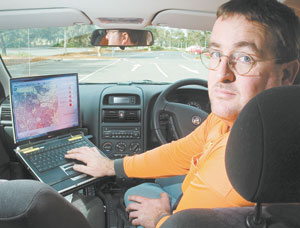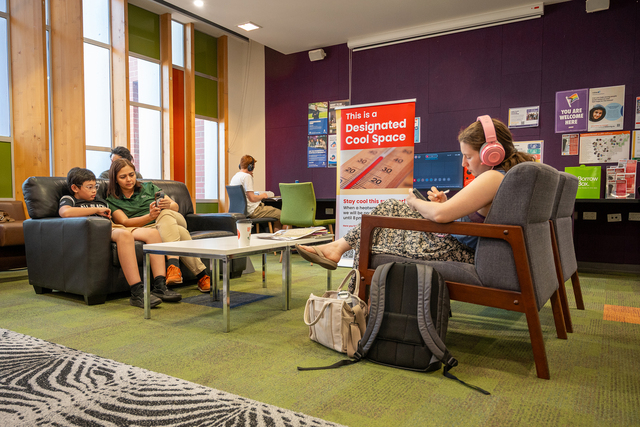As a growth council in Melbourne’s north, Whittlesea City Council staff often find themselves working in new areas and require up to date map data to aid navigation.
Many staff also require access to accurate corporate data while working away from the office.
Council’s mobile computing staff are ICT professionals who look after complex operations and constantly identify solutions to adapt technology to work for the City of Whittlesea and the community it serves.
The unit was recently recognised for its commitment, expertise and outstanding delivery of ICT solutions, taking out the Municipal Association of Victoria’s award for Best ICT Department in 2008.
Mobile computing was introduced to the organisation in 1999, with one project officer employed to establish a GPS and mapping system for Local Laws Officers to use in the field for fire prevention. The pilot used GPS, mobile GIS and laptop computers to save the Local Laws department $8,000 per annum compared to its previous manual method.
Since that successful beginning, the mobile computing unit has grown to three programmers and a coordinator, and a number of its projects have been recognised for innovation and excellence.
Council’s Director Infrastructure and Technology, Neill Hocking, said key to the unit’s success is that the programmers immerse themselves into the client department, to truly understand their work and therefore develop the most appropriate solution.
“For example, our programmers have continuously worked with the Local Laws department over the last nine years to develop and simplify the mapping system and its applications, as both technology and tasks have evolved,” he said. “Programmers regularly go out in the field with the Local Laws officers to get a feel for what they do and how the technology is and can be used. Not only does this enable the right solution to be developed in the first instance, but change management issues are immediately handled, because the user has been involved with the solution development from the outset.”
Evolving from laptop computers used on knees, to those on specially designed stands, the Local Laws department now uses touch screen, in car computers that are connected to a GPS system. The technology enables officers to record all aspects of information they deal with, including parking infringements, litter, incorrect display of property numbers, unsightly buildings and so forth.
Working with the department, programmers realised that large buttons would be needed so that information could be entered and read quickly.
Neill Hocking said the use of technology has enabled both Local Laws officers and administration staff to use their time more effectively, with the major benefit being improved customer service.
“For example, the systems automatically generate all notices at the end of the day, rather than the officers or administration staff having to manually generate them,” he said.
“Administration staff also have the same system that the officers use installed on their desk, so when a customer calls with an enquiry, they can look up the actual report and have all the information in front of them, rather than referring the matter to the issuing officer.”
Neill Hocking said a recent achievement of the unit has been the development of a barcode scanning system to track the location of files for Council’s Records Team.
For further information contact Neill Hocking on (03) 9217 2170.

















